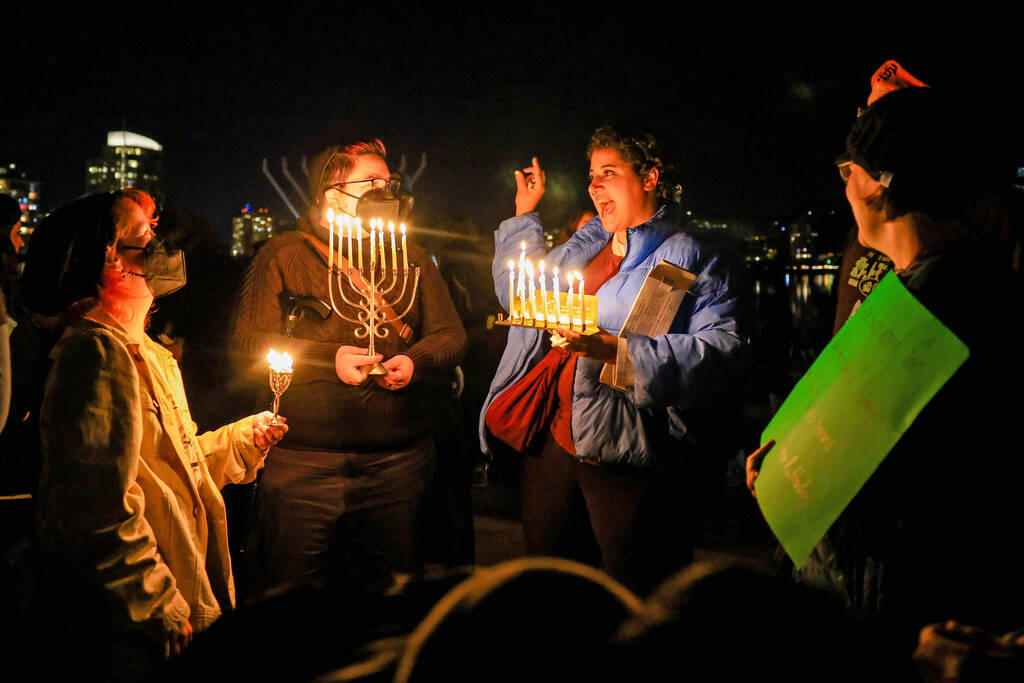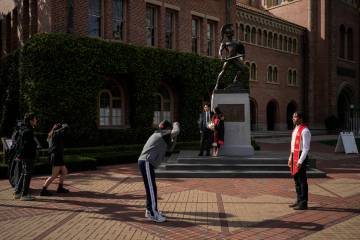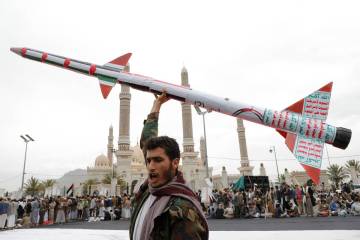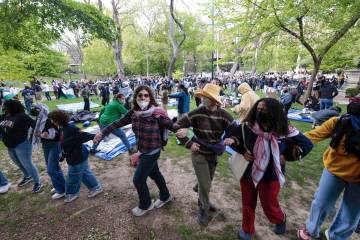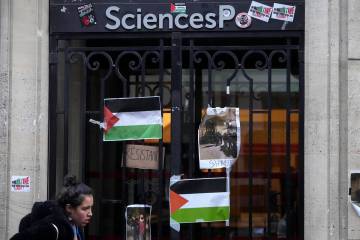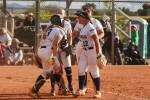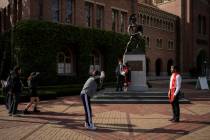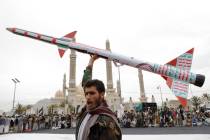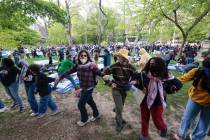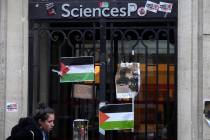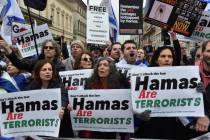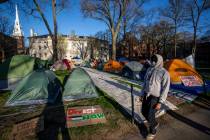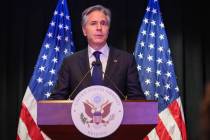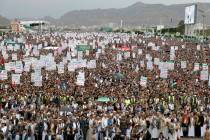Antisemitism upsurge in wake of war unsettles U.S. Jews
Like a plague that long lay dormant, antisemitism has sprung back to virulence in the U.S., deeply unsettling American Jews, many of whom had viewed it as a relic of past generations, destined to fade away.
The upsurge began before the war in Gaza and has now accelerated, bringing intense debate over how to define an ancient hatred in modern times — in particular, where robust opposition to Israel or Zionism — the belief that Jews, like other groups, have the right to a homeland of their own and that it should be in the territory where Judaism began in ancient times — crosses the line into antisemitism.
A large share of the recent debate has focused on college and university campuses, generating congressional hearings and costing at least one prominent university president her job.
Incidents of hatred aimed at Jews, however, go far beyond campuses. Recent antisemitic acts nationwide include graffiti and vandalism at Jewish stores, restaurants and institutions, shots fired in the vicinity of synagogues and assaults on people wearing yarmulkes, Star of David pendants or other Jewish apparel.
The cumulative impact has had a profound affect on the psychology of the American Jewish community.
In a survey released last month by the Jewish Federations of North America, nearly 9 in 10 American Jews and more than 6 in 10 Americans overall said they believed there was more antisemitism in the U.S. now than five years ago.
Asked to consider “just the last few weeks,” one third of the general population, but more than 7 in 10 Jews, said they believed antisemitism was on the increase not just nationally, but in their local communities.
Four in 10 American Jews said they worried “very much” or “all the time” about their personal safety because of their race, religion or other characteristics, a level more than twice as high as the general population, according to the survey, conducted by the New York-based Benenson Strategy Group. Strikingly, the share was higher among younger Jews than older ones.
“I think it’s important to recognize in this moment how vulnerable and fearful many Jews feel,” UCLA political science professor Dov Waxman said in a recent roundtable discussion about antisemitism convened by The Times.
“There’s really a deep, widespread sense of alarm,” he added. “It’s intensified over the last two months, but it’s been really growing for a number of years now.”
Shira Dicker, 63, a self-described politically and theologically liberal Jew, said she grew up in New York thinking that “people who sounded alarms on antisemitism were sometimes exaggerating.”
“Now, I realize that more people hate Jews than I thought,” she said. “To be Jewish in America right now is to feel a sense of emergency.”
Rabbi Jason Rubenstein, Jewish chaplain at Yale University, hears students express similar feelings.
Many young Jews grew up with a belief that antisemitism was a “vestigial memory” in the U.S., he said. Now, there’s a feeling of having “woken up in a different world,” one that feels “tectonically destabilized.”



